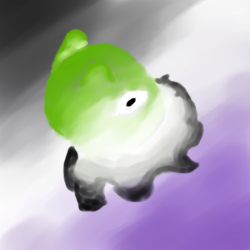Earlier today I finally posted my review of Poison Kiss. You can find it here, but to get you in the beat, here’s the start:
I came into this book ready to LOVE it. And gosh did it start well! At 25-30%, I was in love with just about everyone, rolling in the happiness of what had everything to be an awesome, action-packed, queer-ensemble fantasy story.
And then, and then it… floundered, I guess.
Before I go on, let me caveat that the author, Ana Mardoll, is a queer and otherwise marginalized author herself, and I don’t think for a second that this is intentional. I’m posting because it needs to be said, because these things need to be discussed if we’re going to move forward. Be critical, but be kind.
It took me a long time to understand why Poison Kiss unsettled me so much, and I think that’s because I couldn’t pinpoint a single cause. Rather than one acephobic element, this novel is a collection of tiny pointers that ultimately made me feel unwelcome. Microaggression land, in short. This also explains why I started loving it so much, only to start thinking halfway through maybe this just wasn’t a tale that spoke to me, and then to eventually feel utterly unwelcome in this universe. The signals piled up until I couldn’t miss the message.
- Everyone is hot and desirable, and the protagonist’s plight relies on how she can’t kiss them. A large part of the story is devoted to Rose’s desires and how their non-fulfillment makes her unhappy. And if not hers, then it’s the other characters, because everyone is hot and sexy and wants to get it going. Frankly, lust is so huge a plot motor and character motivator in this, it’s overwhelming and reads as if everyone experiences it.
- Lack of sex is presented as such a punishment throughout the narrative, Rose considers it her atonement for murder. Literally “ […] I might redetermine to live a life of chastity as sacrifice for my own crimes.”
- In theory this novel has an aro-ace character! It’s word of god only, but hey, that could still have helped. That made me feel safe when I started. Except that in this sea of hot, sexy, young people, the aro-ace is the old, inconsiderate and grumpy old lady most of the cast prefers to avoid. Her obsession is books, though, not cats, and I can guarantee she does not read as a generally happy person. So much for using a side narrative to balance out the sex=happiness message this book carries everywhere.
- There is an entire car scene dedicated to Rose asking to be returned to a “normal human” and this is presented to her as “you can kiss Lavender all you want then”. The rest of it is beautiful, but I was busy dealing with yet another tie-in between her healing, her humanity, and her ability to be an active sexual being.
- But the community is helpful for those of us who can’t make human connections.
These connections are, to Rose, made through kisses. Thanks for that. This lines crosses straight into acephobic land.
These add up, a minefield of potential aggression, playing into a the widespread narrative that sex and romance are the one road to healing and happiness and dehumanizing aces all at once. There are layers of complexity to this tale (and a lot of important things about trauma and intimacy), but none of them address the issues of such a clear link between healthy sex = happiness. And no, “this is only Rose’s personal way of healing” doesn’t cut it, because this narrative is everywhere. If you want your story to be safe for the ace community, then you should take care to demonstrate there are other ways or, gods forbid I suggest such an effort, that an ace happily healed through them.
And, listen, I’m writing this post, and even now I wonder… am if it’s all in my head, if I’m imagining or exaggerating and who am I even to speak, when this narrative clearly isn’t mine? But that’s the thing. Those are the voices who would keep us out of the community, those are the voices who put down and gaslight and abuse asexual and aromantic people, and I am done listening to them. I am done keeping my peace.
If Poison Kiss has helped you heal—if it speaks to you as a survivor of sexual assault, as a polyamorous or bisexual person—good for you. I am legitimately happy for you, and glad the tale was there for you. But please, listen when I say it unsettled me deeply. We aren’t asking you to stop writing these stories. I am here for queer people finding happiness in healthy, sexual relationships. Those are great and necessary tales—they matter! But please, watch what you say about sex and romance. Watch how you center it, how you uncritically uphold it as a marker of healthiness and happiness. Unpack that shit. Because a lot of us have other needs, other means of finding our happily ever after, and you’re contributing to saying ours doesn’t exist. You’re saying we cannot be happy, because we are fundamentally wrong.
TL;DR Books like Poison Kiss uphold ace- and arophobic narratives tying everyone’s sex and romance to people’s future happiness by placing such constant and heavy emphasis on them without offering counterpoint data or clear statements that these are personal. They feed the widespread, overwhelming narrative of such things as essentials and they are dangerous to our communities. We struggle to envision happy futures, whether alone or with understanding partners. I’ve read a lot of aphobic shit in my life. I am confident in my identities, and I am a generally solid, happy person mental-health-wise, yet I have never emerged in such a broken headspace as I did after Poison Kiss. Please add trigger warnings when you rec this book. We need them.
